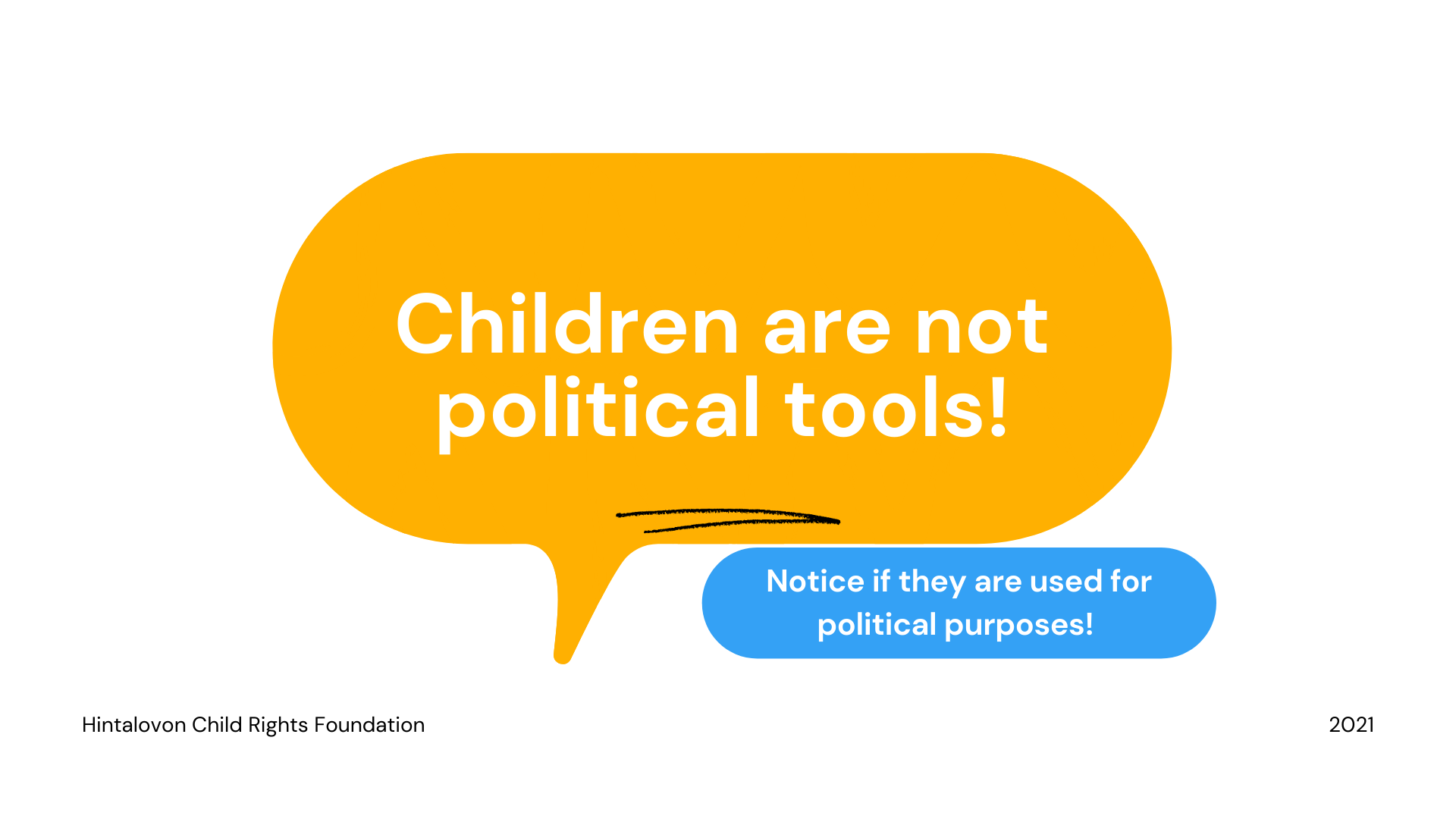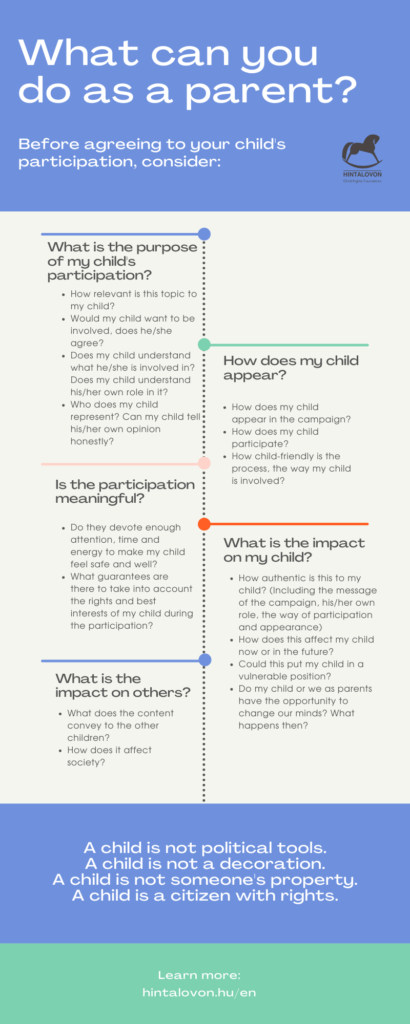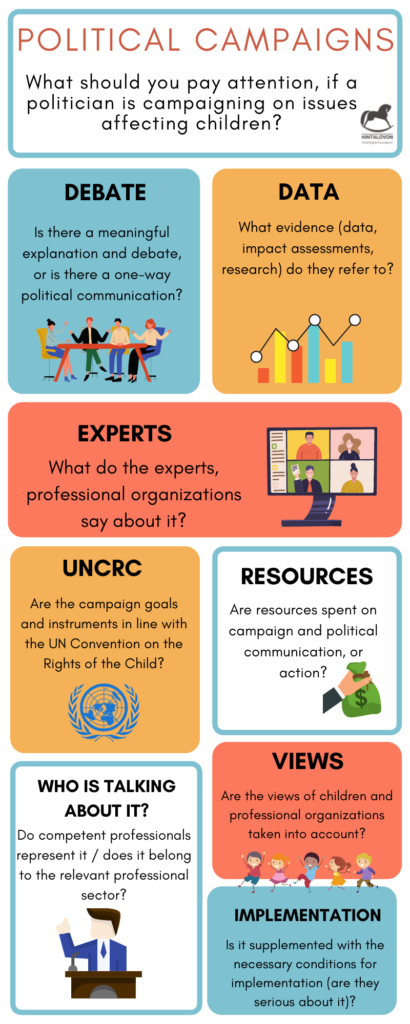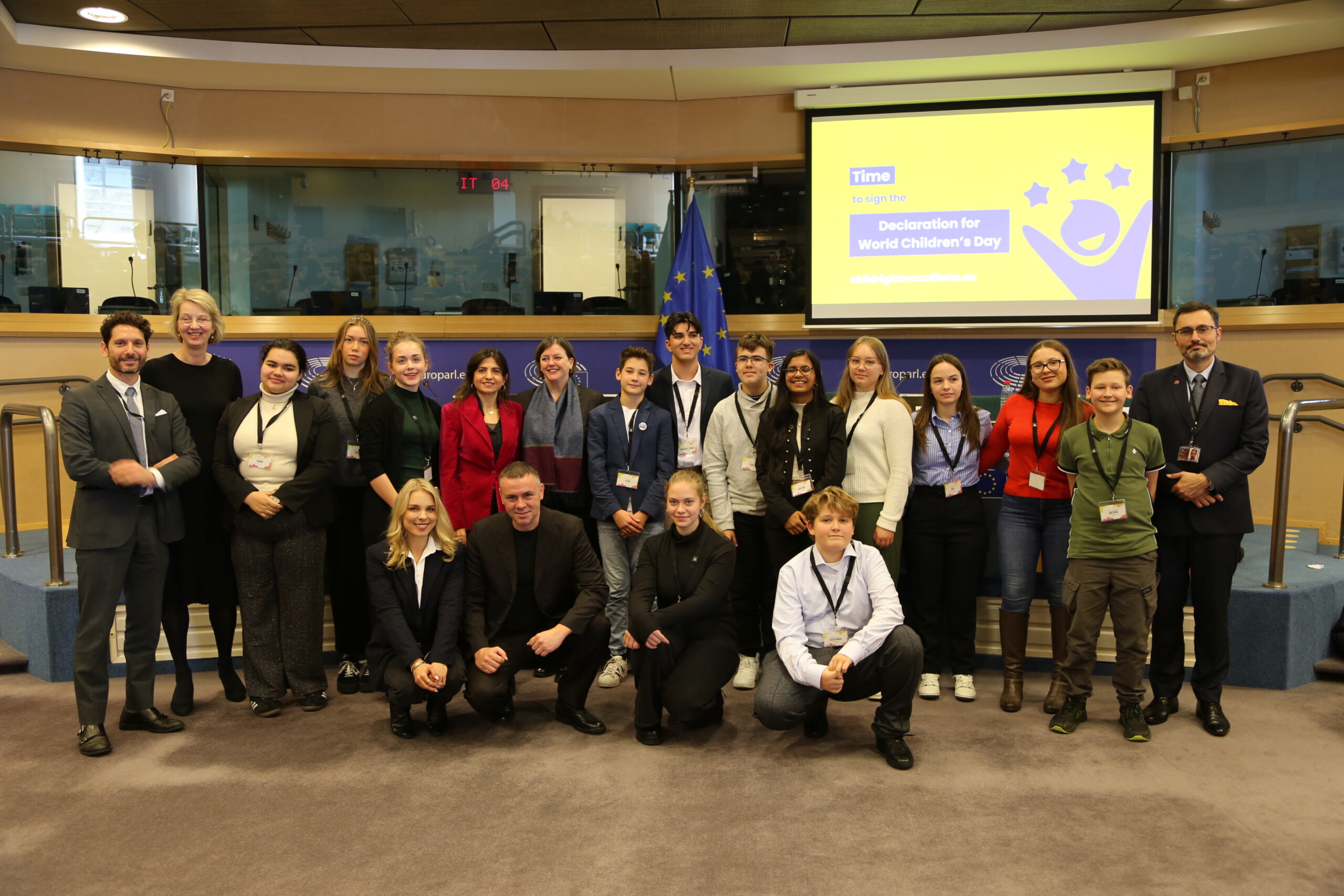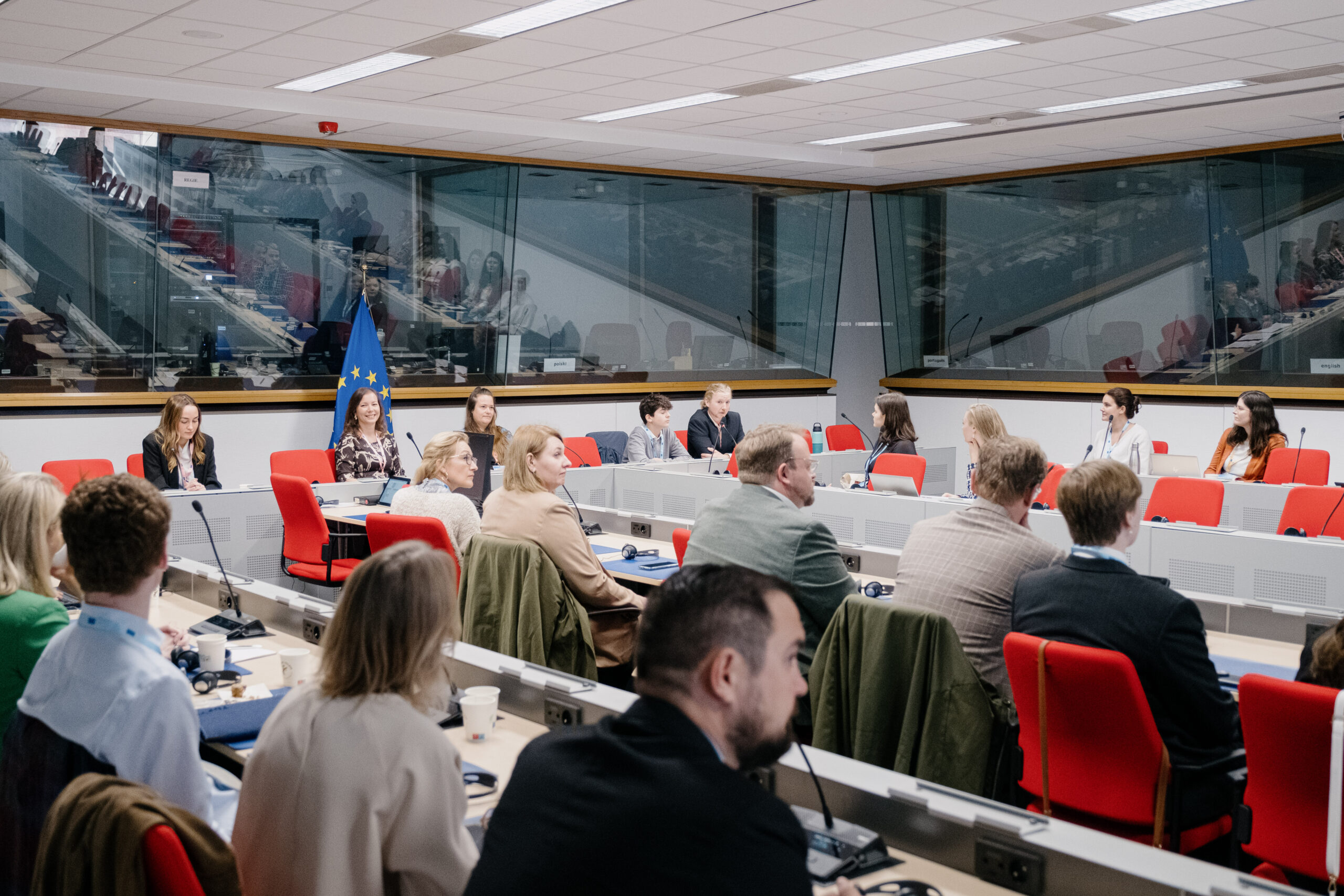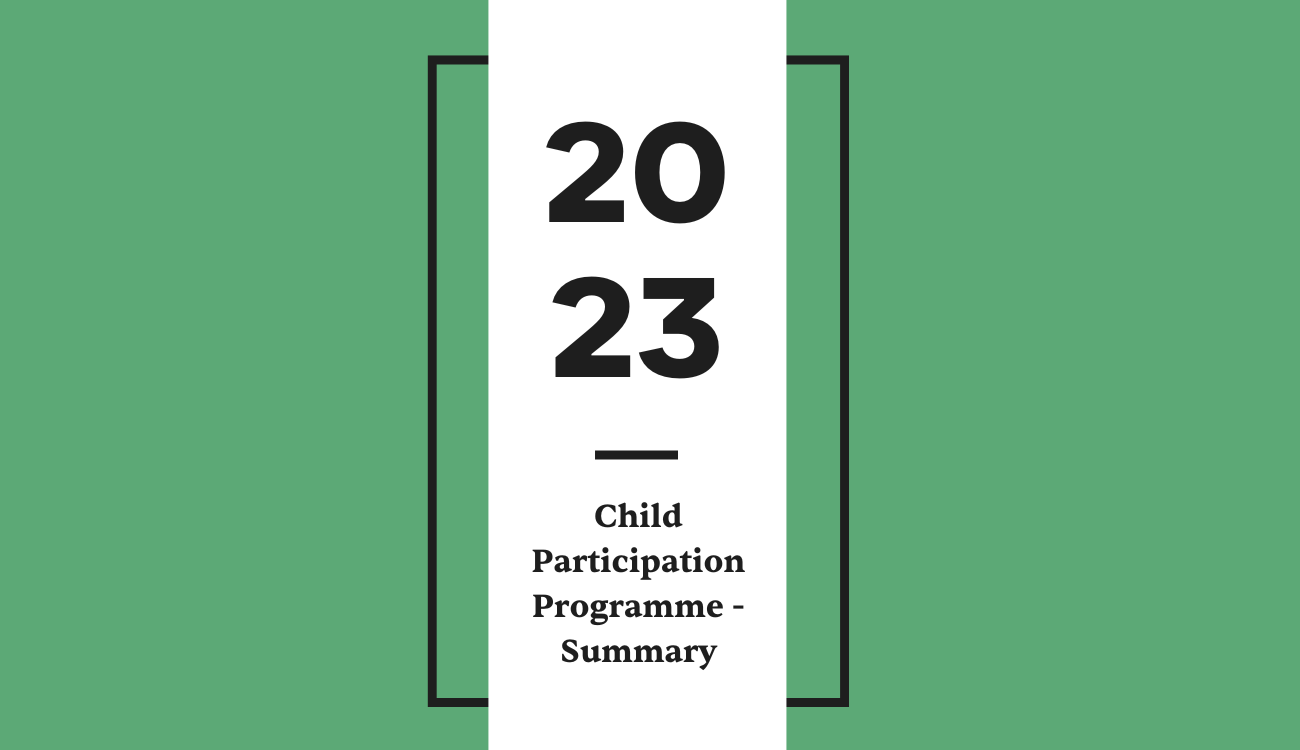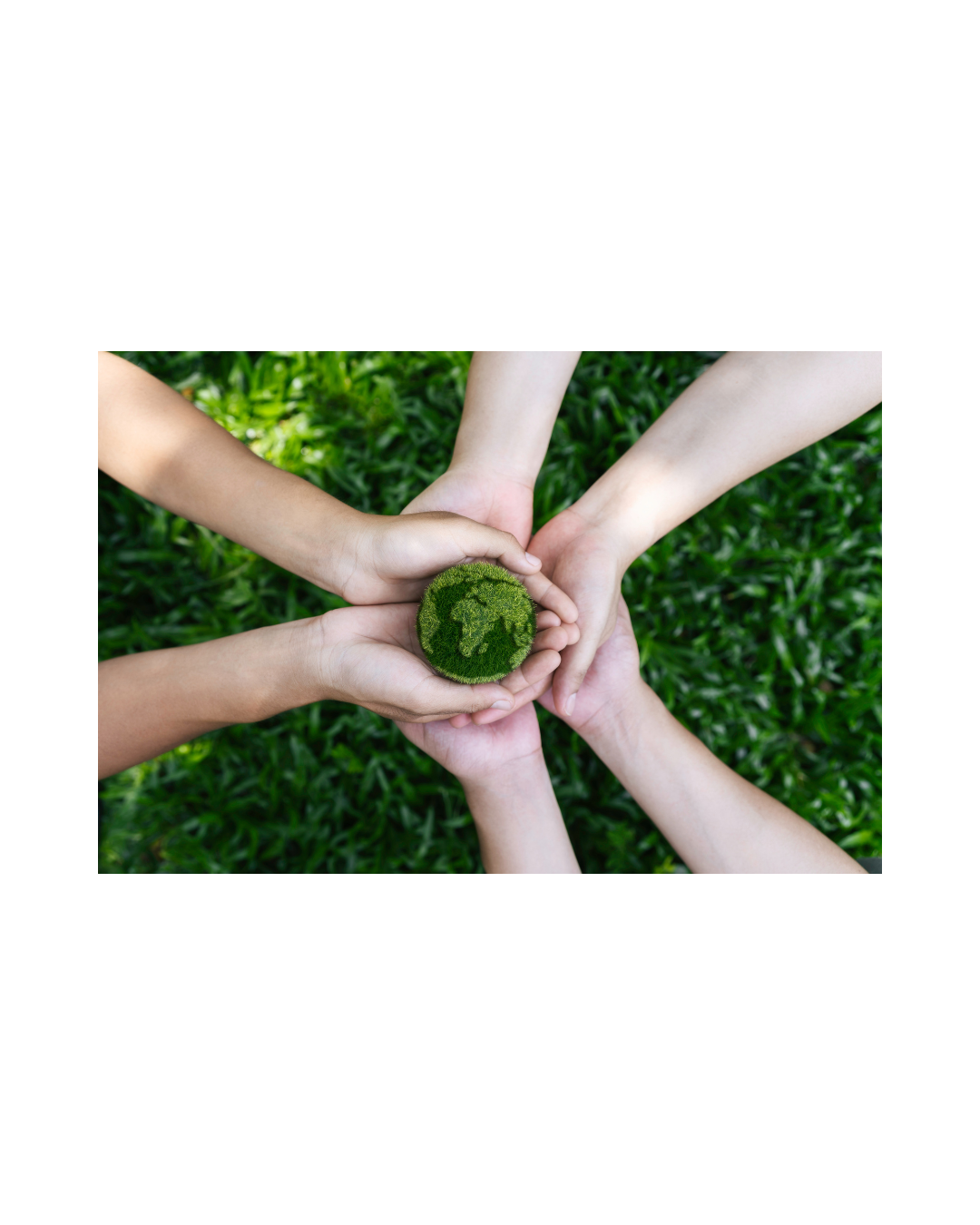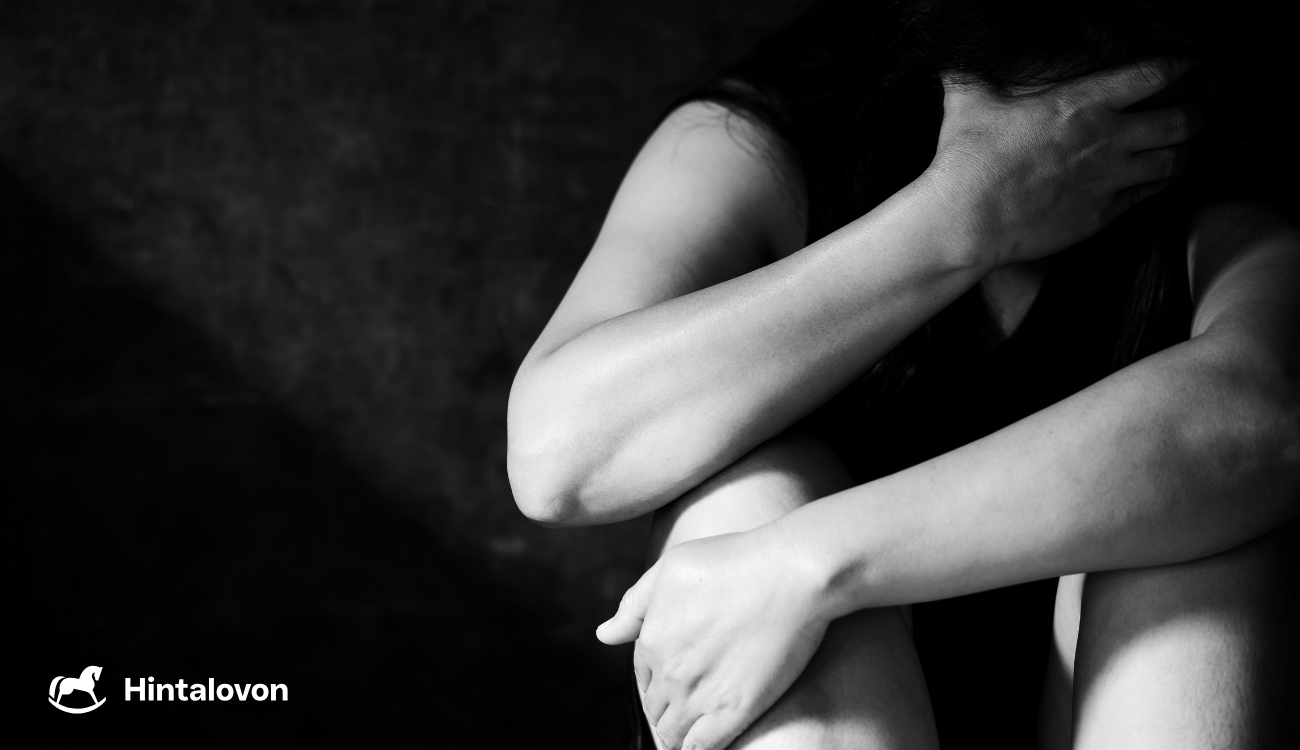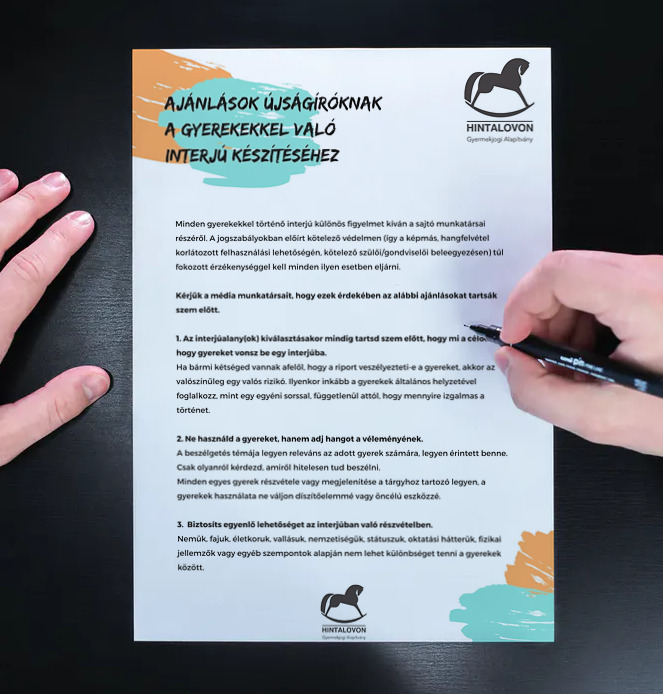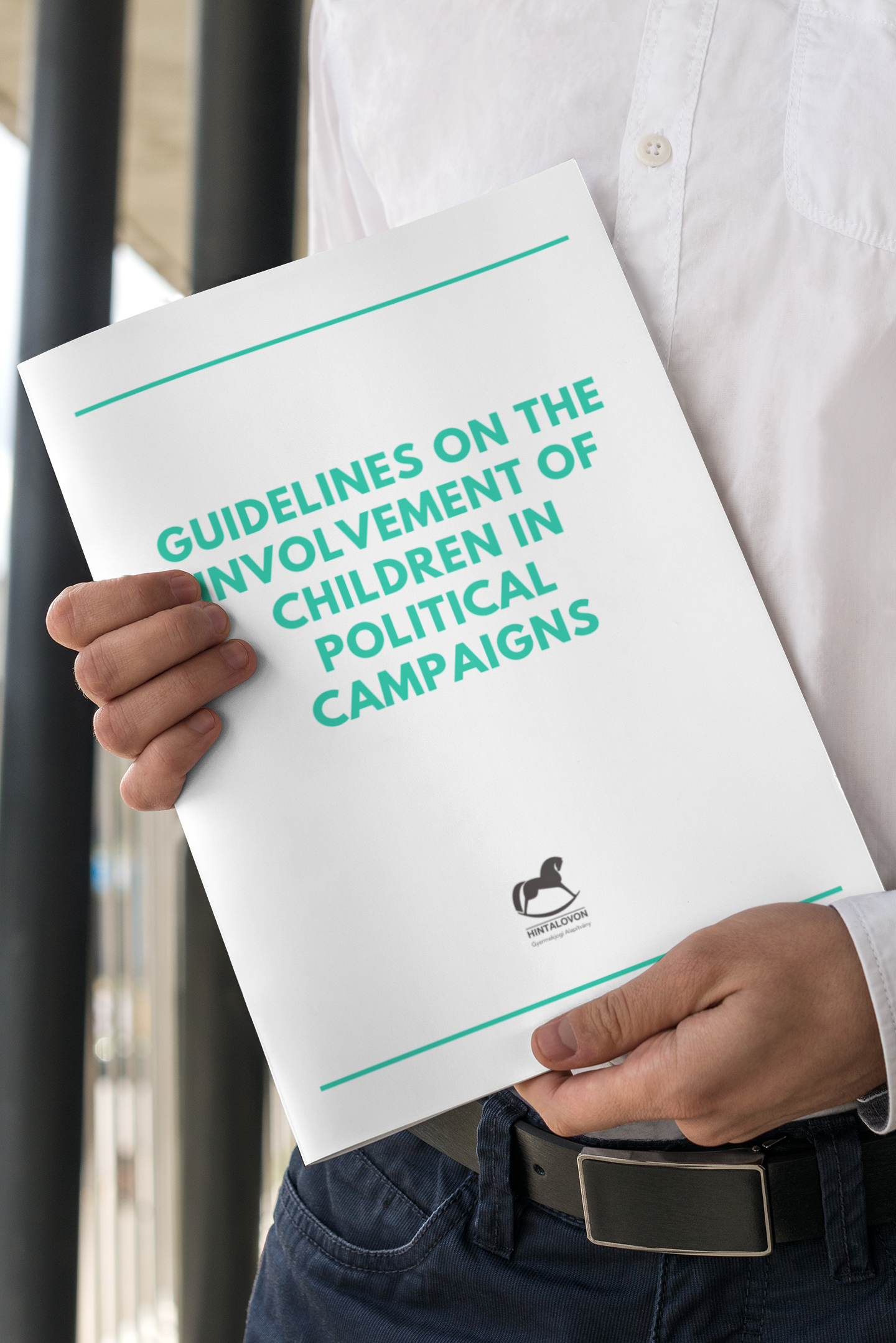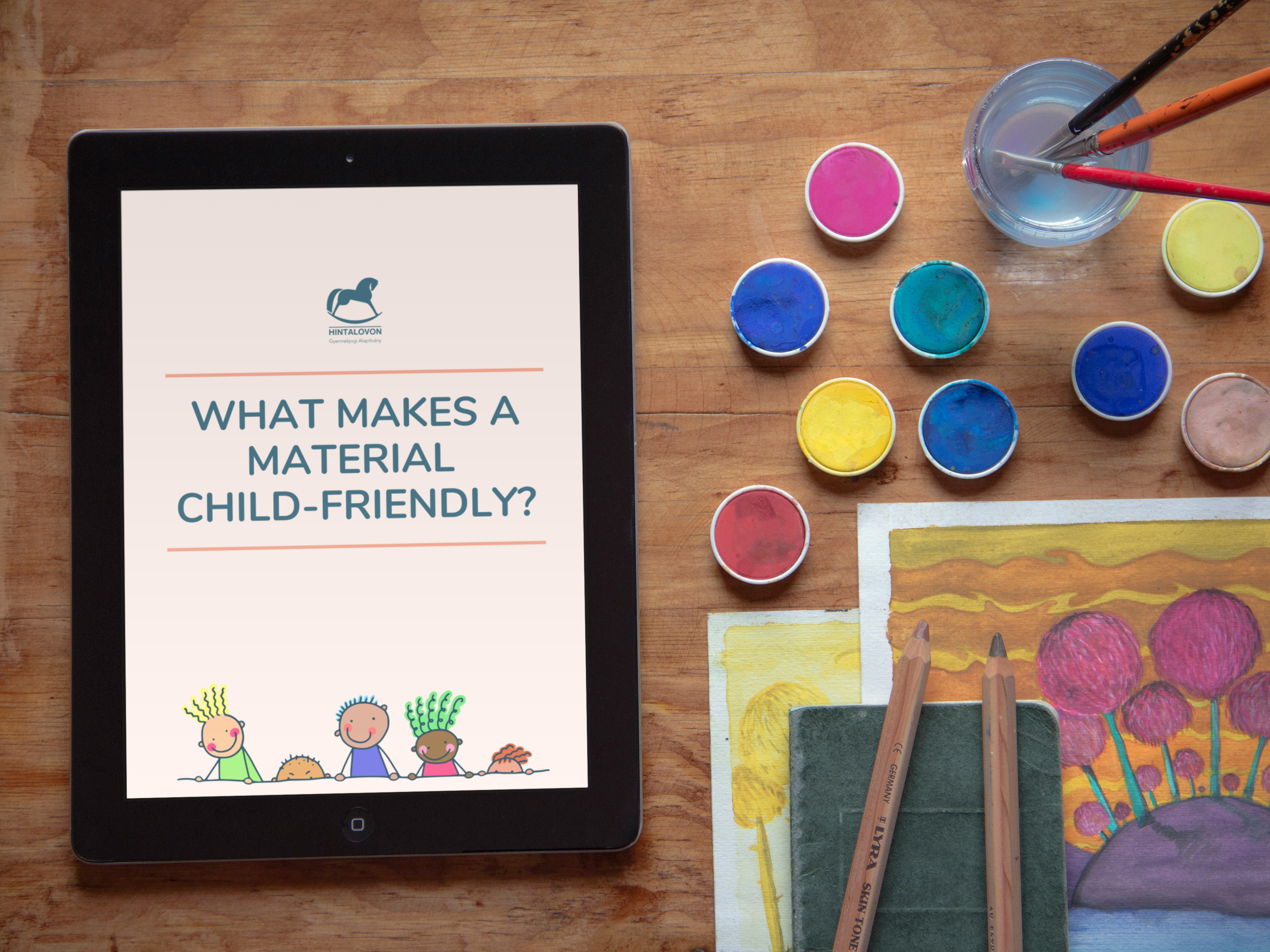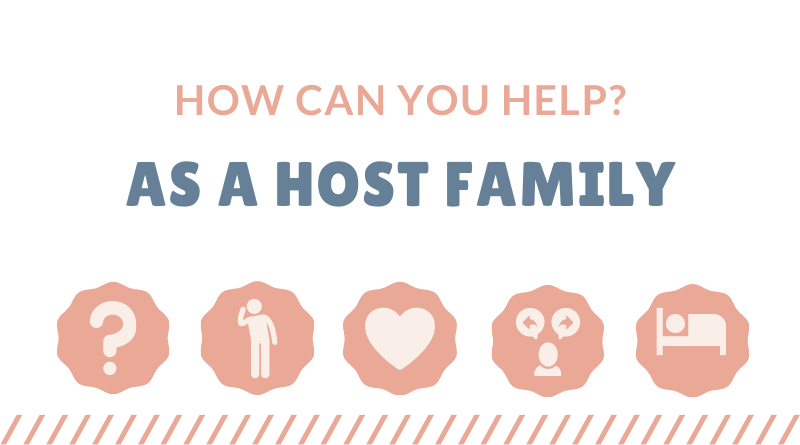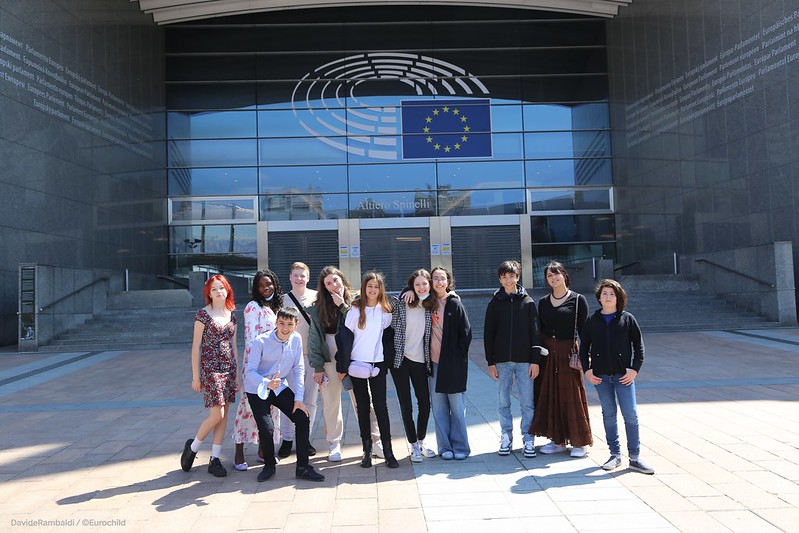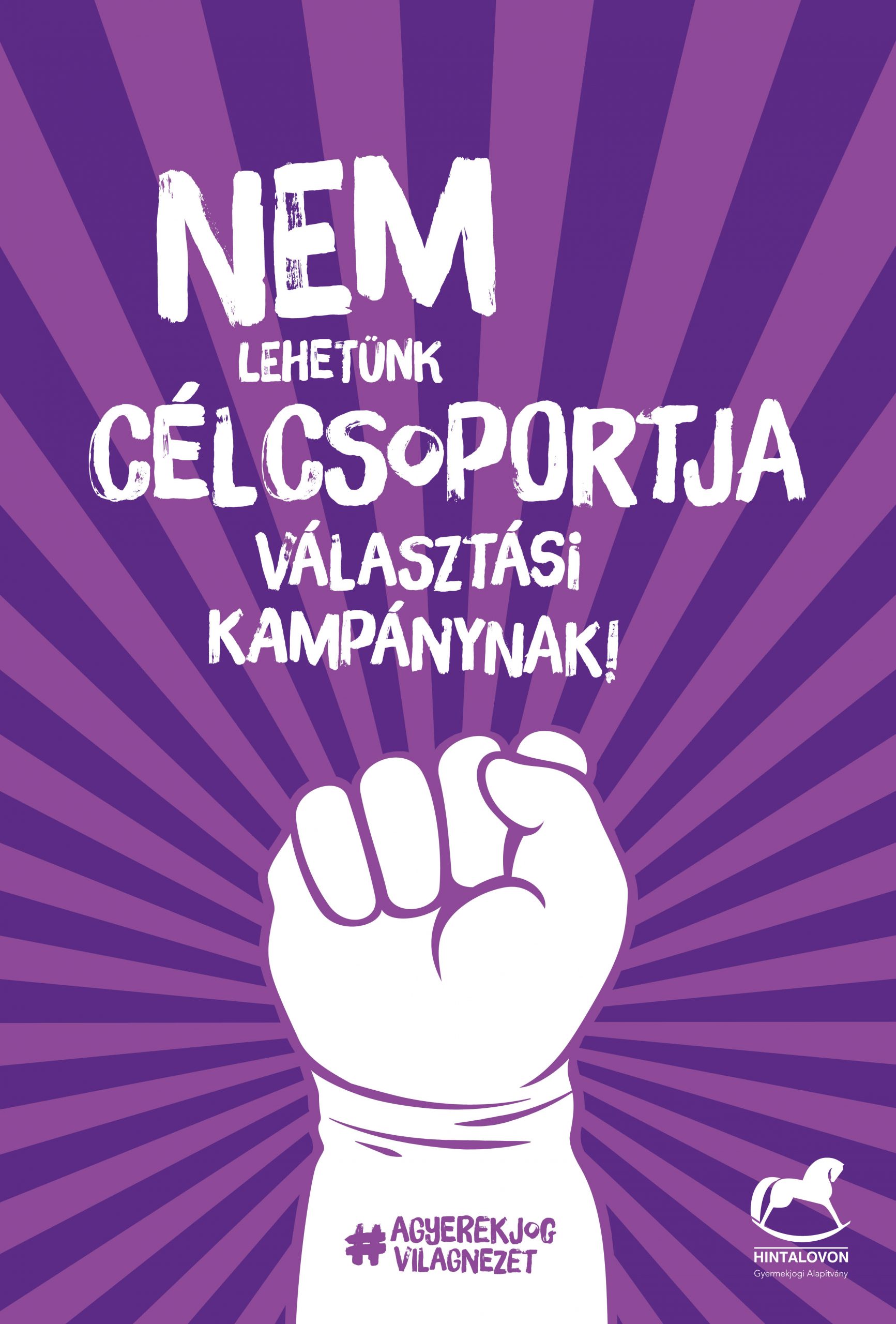An election campaign affects children both directly and indirectly. Elections provide opportunity to shape their civic education, to learn about democratic values, but also to use children for political purposes. A child is not a tool, not a decoration, but a citizen with rights. Their rights are violated if they are exploited or used otherwise for political gain. The Hintalovon Foundation created this child-centered guide for political campaigns in order to help to identify the political abuse of children.
It often happens that political actors, by playing to the emotional persuasion of voters, put children’s rights or even children themselves at the service of their own purposes. Hidden political games behind the protection of children, family photos of politicians, school visits, or child appearances at party events all exemplify this. The scale is wide and it is not always clear whether it is real communication or manipulation with the use of children. The Hintalovon Foundation aims to provide clues and everyday examples with this expert summary.
Child-centered guide for political campaigns – online version
Child-centered guide for political campaigns – download version
The primary goal of political campaigns is that politicians gain the trust and sympathy of their voters, however this cannot be done by running over the rights of their citizens, in particular the most vulnerable target group, the children’s rights. Even if it is unintentionally done or due to the lack of awareness. A child is not a tool or a decoration, and most importantly not someone’s property. The child is an independent citizen entitled to rights. The child is an individual whose dignity must be respected, and as a particularly sensitive and vulnerable target group, it is the responsibility of adults to respect and protect them in their daily lives and also during political campaigns.
Children can become tools for political purposes without politicians actually getting into contact with them. If politicians misrepresent something as if it were in the best interests of the children, it causes severe damage at the individual, family, and social levels, because it distracts attention and resources from real problems. It creates the illusion that something is happening to protect children. It is wading over children and seriously violating their rights, and it mocks everyone who seeks real answers to protect children. Those who care about children can gain the trust and support of voters – but those who care about children also respect their rights. Our summary primarily helps to inform parents and citizens, but – in addition to the previously prepared children’s rights 1×1 and guidelines for politicians – it also provides guidance to political campaign organizers. We hope it raises more awareness of children’s rights on both sides. – emphasizes the essence of the Guide Barbara Németh, expert on children’s rights of the Hintalovon Foundation.
What can you do as a parent?
Before agreeing to your child’s participation, consider:
The purpose of the child’s participation:
- What is the purpose of my child’s participation?
- How relevant is this topic to my child?
- Would my child want to be involved, does he/she agree?
- Does my child understand what he/she is involved in? Does my child understand his/her own role in it?
- Who does my child represent? Can my child tell his/her own opinion honestly?
Method of participation:
- How does my child appear in the campaign?
- How does my child participate?
- How child-friendly is the process, the way my child is involved?
- Do they devote enough attention, time and energy to make my child feel safe and well?
- What guarantees are there to take into account the rights and best interests of my child during the participation?
The impact of my child’s participation:
- How authentic is this to my child? (Including the message of the campaign, his/her own role, the way of participation and appearance)
- How does this affect my child now or in the future?
- Could this put my child in a vulnerable position?
- What does the content convey to the other children?
- How does it affect society?
- Do my child or we as parents have the opportunity to change our minds? What happens then?
What should you pay attention, if a politician is campaigning on issues affecting children?
- Is there a meaningful explanation and debate, or is there a one-way political communication?
- What evidence (data, impact assessments, research) do they refer to?
- What do the experts, professional organizations say about it?
- Are the campaign goals and instruments in line with the UN Convention on the Rights of the Child?
- Are resources spent on campaign and political communication, or action?
- Are the views of children and professional organizations taken into account?
- Is it supplemented with the necessary conditions for implementation (are they serious about it)?
- Who is talking about it? Do competent professionals represent it/ does it belong to the relevant professional sector?
You can already do a lot for children’s rights, if you pay attention to the topic!
- Talk with your friends and family about using children and involving them in political campaigns.
- Familiarize yourself with children’s rights and the possible options for enforcing them.
- Think critically, read and follow the news, orient yourself.
- Become aware of your own attitude, behaviour, values.
- Do not distribute/share political content that abuses the image of children.
- Stand up against the political use of children, making sure that you also respect the human dignity and rights of others.
- Write to your representative, to the offending politician, to the school that admitted them, and send them information material.
- When you vote, take into account how they treat children.
Learn more
- Children’s rights 1×1 for organizers of political campaigns and politicians (Hintalovon Children’s Rights Foundation)
- Guidelines on the involvement of children in political campaigns (Hintalovon Children’s Rights Foundation)
- Advice and sub-page of the Hungarian Civil Liberties Union (TASZ) for parents in case of party politics in school and kindergarten
- The website called School and Politics, a joint project of the Eötvös Károly Institute and the Association of History Teachers
- Objection template to be submitted to the Election Committee (Eötvös Károly Institute)
- Statement from the Commissioner for Fundamental Rights and his deputies on the use of children for political purposes
- Maltese study and draft directive on children’s participation in political communication
